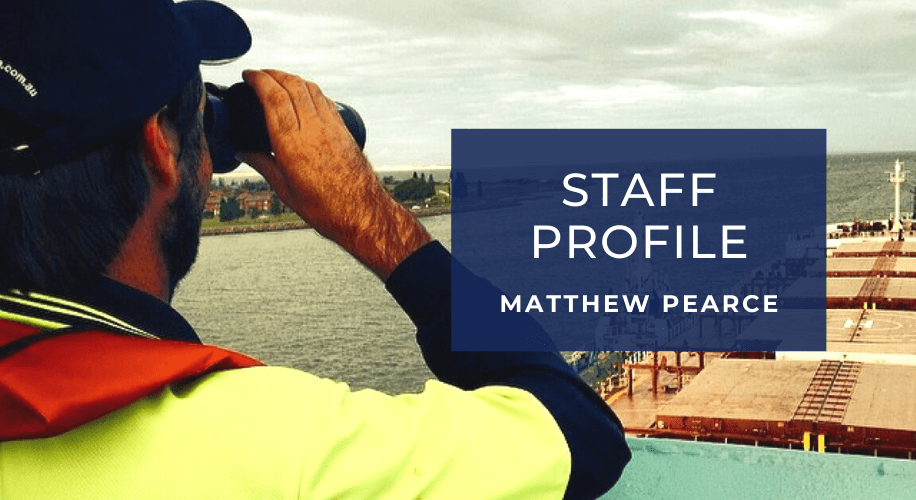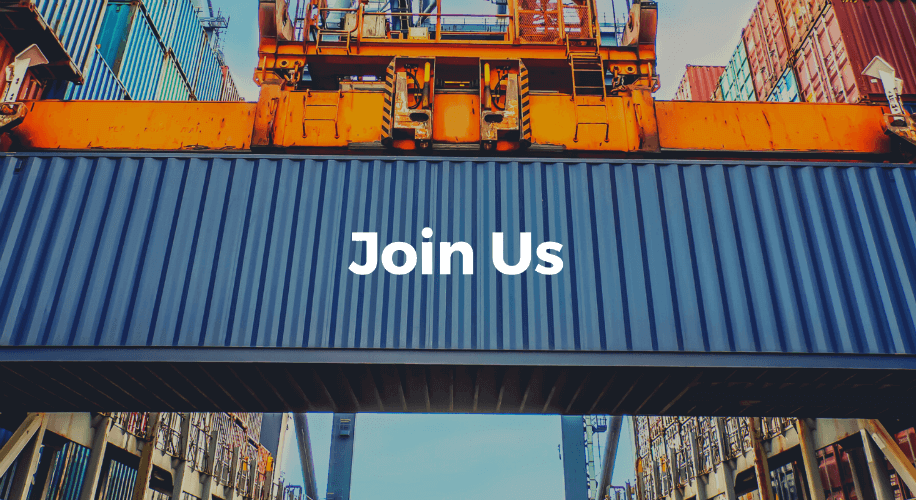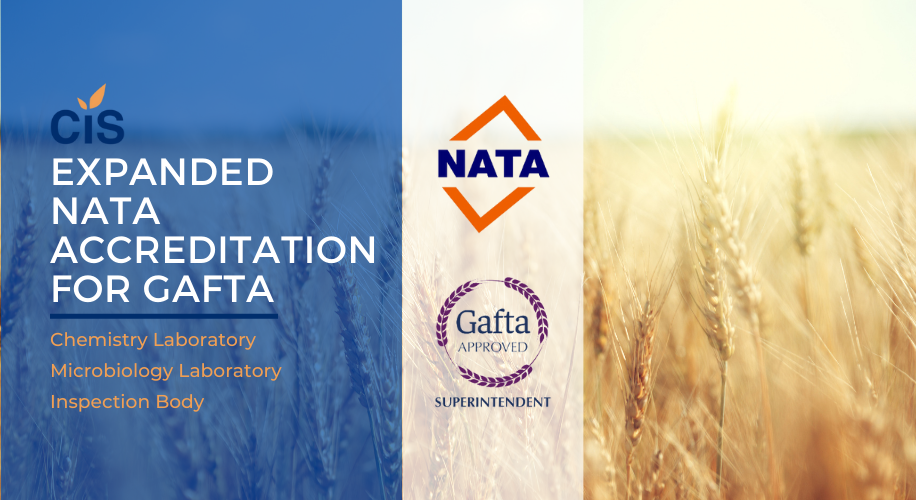Matthew Pearce is a marine surveyor at CIS, specialising in bulk liquid cargo surveying. We had a conversation with Matthew to find out about him and his work.
How did you get into the marine surveying field?
I started off quite young, while in high school I was running around sampling tanks, doing the physical stuff, while my father co-ordinated the loading supervision. Spare time was spent in our laboratory familiarising myself with the traits of Australia’s agricultural commodities. As time went on I realised I thrived among the industry’s challenges and built on the experiences gained and to further expand my knowledge I have completed a Diploma of Marine Cargo Surveying through the International Institute of Marine Surveying.
During this time I have become a member of the Australasian Institute of Marine Surveyors (AIMS), the professional body representing marine surveyors in Australasia.
When did you start working with CIS?
Seven and a half years ago I began working with CIS on a full-time basis. I always wanted to work outdoors away from the nine-to-five, doing something a bit different and this is definitely different. You learn something new every day.
What’s involved in working as a marine surveyor?
As a marine surveyor we’re out superintending the loading of bulk cargo onto cargo vessels. That entails pre-shipment sampling, loading supervision, data validation and verification of the quantity loaded onto the ship. There are a couple of different fields we specialise in – bulk liquid surveying and bulk grain surveying.
For dry bulk cargos, we conduct an inspection of the ship before we start loading into it alongside the Department of Agriculture. There can be previous insect infested grain residues in the ship’s holds that could contaminate our client’s valuable cargo. We do that for bulk fats and oils too – there could be unpleasant odours, or previous chemical residue, or moisture in the cargo tanks. If any odours or contaminants are found we reject that tank and an alternative stowage or vessel is sourced. So prior to any cargo loading we have to do a pre-shipment inspection to make sure it’s suitable to load the client’s cargo into.
In regards to bulk liquids, we do our quantifying and sampling on the shore first and then we repeat the process on board the vessel to ensure no cargo loss or contamination occurred during loading. Using the temperature of the liquid, the dimensions inside the bulk tank and a calibration table we are able to determine what the actual volume, density and subsequent weight of the cargo inside the tank is. We do this independently for our clients to ensure that their consignment is loaded within the conditions of their contract.
What do you enjoy most about it?
I enjoy the challenges each day presents and having to adapt to different situations and environments. I prefer the variety rather than the routine of an office job. As a marine surveyor we’re often called upon to travel to different ports around the country. This year I’ve been to Port Lincoln (SA), Lucinda (QLD), Esperance and Kwinana (WA). At some stage I’ve been to most of the major cargo ports – Townsville, Mackay, Port Alma, Newcastle, Sydney, Port Kembla, Melbourne, Burnie, Adelaide, Fremantle and also to Lae in PNG.
What are the challenges?
At times not having a schedule can be difficult, the ships can arrive at any hour and you need to be there when they do. A ship could take around 16 hours on average of loading time so you need to be flexible. Technology makes things easier – there’s a website that has every cargo ship tracked via GPS so I can track the voyage of our clients vessels from port to port.
Some people don’t like the smell of the cargo, like tallow (animal fat). The odour can be quite unpleasant, your clothes and car always smell. I’m used to it now so I don’t mind at all. I have been to formal events after I’ve worked with tallow. Once I had to catch a plane straight after a 20 hour loading of tallow, wearing my bright orange overalls because I didn’t have time to change.
What do you do when you’re not surveying ships?
Mostly fishing, playing golf, four-wheel-driving, camping, a lot of outdoor activities. I just got back from Fiji and caught some awesome fish there. Soon I’ll be heading to Cape York Peninsula on a four-wheel-driving adventure with friends and family.




